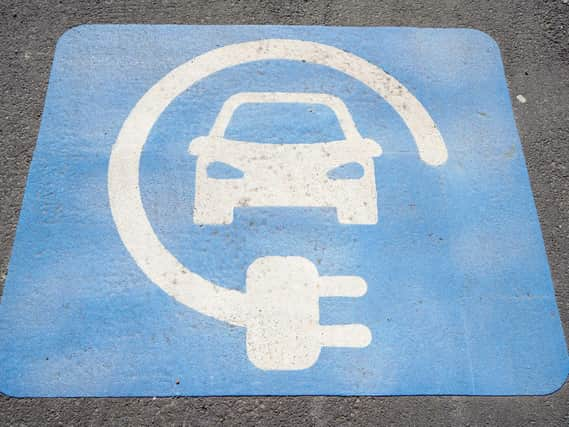Letters - Tuesday, August 10. 2021


I read with interest the comments made by Dave Croucher in Thursday’s Gazette about a need to standardise charging connections for electric vehicles, as he believes there are too many different and incompatible connectors, that a suitable adapter may be necessary.
There are, in fact, only two types of connector for fast charging. Type 1 is fitted to some older EV cars and early Nissan EVs. All new EVs have already standardised to Type 2, which is common across Europe.
Advertisement
Hide AdAdvertisement
Hide AdPublic fast AC (3.6kw or 7kw) charging posts are all Type 2 sockets, and the vehicle owner connects with their own lead from the universal Type 2 socket to the socket in their car. In effect, the car owner comes prepared with the correct cable for their vehicle.
For DC rapid charging, again there are two connectors – Chademo, which appears on early Nissan and some Renault vehicles, and the more common and pretty much standardised Type 2 CCS, which appears on most, if not all, new EVs in the UK.
Rapid DC chargers are all “tethered” so have cables already attached for the user to connect directly to their car, and they usually have BOTH Chademo and Type 2 CCS connectors. They generally also have a type 2 fast charging socket as well, for which the user brings their own compatible cable.
In summary, we already have a “standardised” connection in the UK and Europe. Type 2 for AC charging, and Type 2 CCS for Rapid DC charging. There really is no need for any adapter.
Advertisement
Hide AdAdvertisement
Hide AdWhat we do need as for a joined up approach to rapidly expand the charging network, with local councils adding charging posts to street lamps and rapidly increasing the availability of reliable fast and rapid charging at public car parks.
The challenge to get the nation into EVs before 2030 will only be achieved if the public have confidence that public charging is widely available and reliable.
David Taylor
via email
ENVIRONMENT
Asia and Africa need to change
The pre-COP26 summit in London, intended to shape the agenda and outcome of Glasgow’s ‘Green Jolly’, caused barely a ripple with the two issues which will dominate proceedings flying under the radar.
Firstly, speaking on behalf of the entire continent, South Africa demanded $750billion-a-year from the US, the EU and Brexit Britain to pay for its “green transition”.
Advertisement
Hide AdAdvertisement
Hide AdThis is much higher than the $100bn set for 2020 – which hasn’t arrived. And whatever is promised in Glasgow, a $750bn-a-year transfer of capital from well short of one billion ordinary taxpayers in the West to the corrupt government elites in the developing world won’t happen.
The second elephant in the room is the reluctance of India, China et al to hobble their drive for industrial strength by renouncing the use of coal.
Asia and Africa know that vastly more people die from poverty and disease each year than die from global warming, and that their people can adapt to climate change without wrecking the continents’ economic growth.
Dr John Cameron
Howard Place, St Andrews
INDUSTRY
Pay more the right services
The collapse of heavy engineering company Sheffield Forgemasters into public ownership for a price which is little more than the cost of a nice home in London is the result of years of hostility to private industry.
Advertisement
Hide AdAdvertisement
Hide AdIf the company had been paid a realistic price for its work on government contracts rather than being threatened with the work and the jobs being offered to subsidised companies overseas, it would now be valued at a realistic price for its assets and engineering capabilities.
It was Prince Charles who first highlighted the importance of the successor to the Vickers company in the continuing prosperity of British engineering. Unfortunately, we live in an era where penny-pinching by politicians at the expense of any good industry in this country has seen too many businesses disappear. Then the politicians complain that we live in a low productivity economy.
Engineering and aerospace companies abroad have been able to keep up with the latest technical developments by payments for defence contracts which have included a hidden subsidy.
In the US, the Skunk Works of Lockheed is famous for development of spyplanes and stealth fighters, expenditure which has to a large extent been kept out of the public domain for acceptable security reasons.
Paul Brown
address supplied
DIALECT
In a manner of speaking
Advertisement
Hide AdAdvertisement
Hide AdJust what is it about the people of Hull and other places in Yorkshire who simply cannot sound the letter O, and change it to ‘err’?
Do they have any idea of how utterly ridiculous it sounds?
I enjoy watching GB News, but cringe whenever their Hull-born presenter Michelle Dewberry starts speaking.
David Morris
Bolton
Thanks for reading. If you value what we do and are able to support us, a digital subscription is just £1 for your first month. Try us today by clicking here